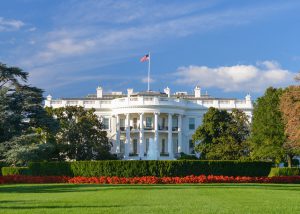Discussing the Merits of Device Encryption
In the wake of Apple and Google’s recent decision to implement “whole device encryption” on their latest mobile operating systems, the FBI has warned that the tech giants’ actions will force law enforcement to “go dark” when it comes to keeping tabs of criminals. FPF has previously explored the question of encryption and law enforcement access, and encourages efforts by tech companies to make their devices and services more secure.
In the wake of Snowden’s revelations about government surveillance last year, there has been a renewed conversation about whether communications technology is sufficiently secure. At minimum, encryption helps to protect users against unauthorized access to their personal information. The question now facing policymakers is whether improvements in technical security must be sacrificed to enable lawful government access.
Kicking off a conversation on the merits of device encryption, Chris Wolf wondered whether today’s debate was simply a repeat of the crypto wars of the 1990s, or whether a new security balance ought to be struck. Wolf discussed that and more with Georgetown Law’s Carrie Cordero, Amie Stepanovich from Access Now, and Cato’s Julian Sanchez, who stepped away from planning a full-day symposium on the larger issue of government surveillance.
A Renewed Conversation about “Going Dark”
Cordero noted that the concept of “going dark” is nothing new, but stressed that there were significant differences between how the debate was waged in the 1990s versus today. Whereas previously the FBI was concerned about the ability to engage in real-time surveillance, it now has very real concerns about its ability to lawfully obtain stored information. This has changed since Snowden the aggressive implementation of encryption and other technologies by tech companies.
“Why are we talking about encryption now?” Stepanovich mused. “Computers have had default encryption on hard drives for many years without anyone raising an eyebrow, but now because it’s on a phone it’s different?” She argued that the current debate is inexorably tied to concerns about surveillance in the wake of the Snowden revelations. “The conversation we’re having isn’t because governments were going after bad actors, but because they were going after everybody. [We now know] how robust the efforts are to get access to your data when access can be gotten. If there is any vulnerable point . . . somebody is probably going to break in and get the data,” she stated. “[Encryption] comes from an abuse of gathering information.”
Wolf pushed back, asking whether such a decision ought to be made as a matter of public policy and not by device manufacturers. Stepanovich countered by suggesting one take a larger view: “These devices are sold around the world. If we start looking at the risk to the user worldwide, it becomes unacceptable . . . not to offer the most security they can offer.” Encryption should be viewed not as an unnecessary obstruction, but rather as an additional protection from unauthorized access to personal information.
However, Cordero cautioned against abandoning efforts to work on technical solutions to protect users against bad actors and allow compliance with law enforcement. She stressed that there remained a societal interest in preserving the capacity of law enforcement to serve lawful process to investigate crimes and national security threats. “What the government is talking about now is the ability to serve a court order,” she said.
What’s the Honest Impact?
Sanchez was skeptical of government’s ability to calculate how encryption actually impacts law enforcement. “We’ve been ‘going dark’ for a long time according to the government,” he stated. He highlighted lots of different ways that law enforcement can gain access to information without physically accessing a mobile device, and suggested that it was quite possible for an individual to be held in contempt of court and jailed for refusing to unlock an encrypted phone. While all conceded the Fifth Amendment protections against self-incrimination are murky at best when it comes to being compelled to unlock an encrypted device, Cordero cautioned that holding individuals in contempt was not a useful mechanism when time is of the essence. “Contempt proceedings aren’t going to be particularly satisfying for law enforcement,” she explained.
“We basically need magic,” Sanchez responded, critiquing the government’s position. He cautioned against treating tech companies like “magicians” and highlighted The Washington Post editorial board’s recent call for “golden keys” that would only work for law enforcement. Technical experts and security researchers largely agree that implementing any sort of hidden access feature also introduces exploitable vulnerabilities, he explained.
He also made the point that Apple’s “soup-to-nuts” business model, with its walled gardens and closed systems, is largely unique. “A general premise in computing is that someone will sell you a computer that comes pre-installed with things like Windows, and you could install other software like Linux,” he explained. “That’s an important value that’s given rise to a tremendous amount of innovation.” Comparing Apple’s mobile device business model to Android’s, which is largely open-source, Sanchez explained that the government’s position effectively wages a war on open-computing. “It’s not possible to force people to keep a backdoor they don’t want, or any attempt would be extraordinarily destructive,” he explained.
Looking Forward on Device Encryption
Wolf asked each panelist to preview where the conversation would be a year from now. Sanchez flippantly suggested public discourse would continue to be filled with “hypotheticals cribbed from The Blacklist.” Stepanovich noted that this debate has been ongoing in some form for decades, and we will likely be in the exact same place a year from now. She argued the only positive change could come from revisiting the logic behind the Communications Assistance for Law Enforcement Act (CALEA). She suggested that privacy advocates were largely playing defense rather than offense. “We need to put a law on the books [that states] government cannot force companies to put in a backdoor that makes users less secure,” she stated.
Cordero offered a different perspective. “If law enforcement is serious about pursuing this issue, they’re going to have to make the case.” Noting that many of the FBI’s most recent anecdotal examples of “going dark” have been debunked, she suggested the law enforcement needs to develop a more comprehensive factual record. “In the 1990s, the FBI presented a range of statistics and data that demonstrated factually that there was a situation requiring legislation. As well as GAO reports and independent studies. We need additional facts.”
At its core, she continued, this debate is the same argument as was against CALEA in 1994. “We made a judgment then [that forcing companies to comply with law enforcement] was a valid purpose,” she explained. If companies are no longer required to preserve that capability in the future, it will become costly for government to adapt as technology rapidly evolved.
Sanchez disagreed with comparisons to CALEA. He explained that CALEA applied to a small number of telecoms with centralized hubs, and there is a huge difference between what CALEA accomplished and what is being proposed now. “What we’re talking about now is forcing an architecture used by hundreds of millions of consumers that would preclude devices from running arbitrary code,” he argued.
Stepanovich returned to Cordero’s point that device encryption could prove costly to law enforcement. She noted that “tech has trended the other way.” Instead, technology has largely decreased the cost of government surveillance (which FPF Senior Fellow Peter Swire has also explained as leading to a “golden age of surveillance”). “Things like encryption counter that dip in price by forcing law enforcement to invest in more targeted surveillance,” Stepanovich said, which should be encouraged.
A Big Policy Choice: To Kill Encryption of Not?
Encryption, Stepanovich concluded, “gives users the ability to control their own data and gives them an option.” Highlighting was has been called “the least trusted country problem,” the costs of encryption must also be weighed against the effects of surveillance in other countries, which lack the legal safeguards of the United States.
Tech companies are responding to market pressures to do more to secure information, and additional encryption options are the result. The panel largely agreed that law enforcement still has alternative ways of accessing most of the information being encrypted on a device. “No body wants perfect encryption,” Sanchez concluded. “We forget our complicated pass phrases, and then everything is irretrievably lost.”
More discussion on the matter is clearly needed. As Cordero explained, “Law enforcement and national security may continue to stress this issue.” However, she also acknowledged that the issue may well be “politically impossible” to address.



